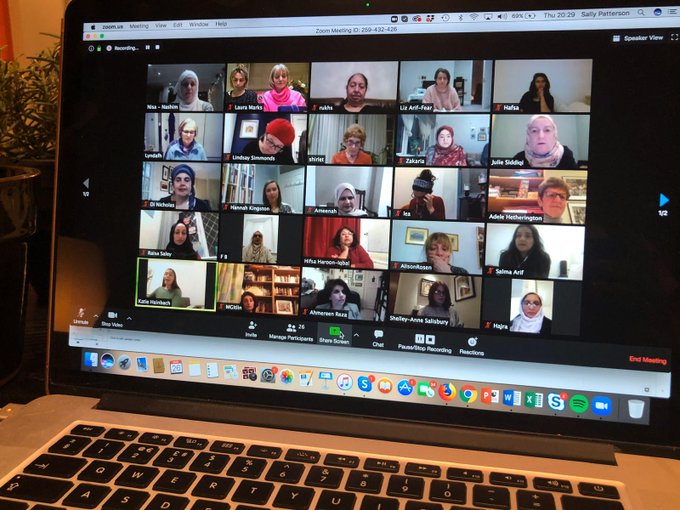At this challenging time, as the Abrahamic faith communities approach a most sacred season in their annual calendars – Passover, Easter and Ramadan – lock down is depriving all of us of the opportunity to congregate in person. In that the virus at the centre of this global pandemic is not differentiating between religious affiliation, gender, race, or nationality, we see this as an opportunity to stand in solidarity with each other.
On this important occasion, we’ve asked two of our Mitzvah Day supporters to share with us the struggles their communities will face in celebrating Holy Week and observing Ramadan in the weeks ahead. We hope you find comfort in knowing that all of humanity are fighting the same cause and that religious leaders firmly believe that our prayers and support of each other will lead us forward with hope and inspiration.
Four Ways to Embody the Fasting Spirit whatever your Faith
By Liz Arif-Fear
It’s been a strange few weeks into self-isolation at home amidst the Coronavirus pandemic. I for one am still receiving emails about cancelled events.
Yes… Welcome to lockdown!
Of course, for Jews, Christians and Muslims alike, things are going to get even stranger. With the current pandemic, Pesach (Passover), Easter and Ramadan are all going to be spent at home. We’re already into April and it’s now less than a month until Ramadan starts.
For Muslims across the globe, Ramadan is a special month when we fast from dawn to sunset, abstaining from food and water during daylight hours. Prescribed in the Qur’an, it’s a time to practice self-discipline, (re-)connect with our faith and to remember those less fortunate than ourselves.
This, of course, means it’s an important period for giving and doing charitable deeds.
As people look to help others and also connect with those around them, it’s also a very social period. Families, friends, neighbours and communities often get together for a communal Iftar – the name we give to the evening meal when we break our fast.
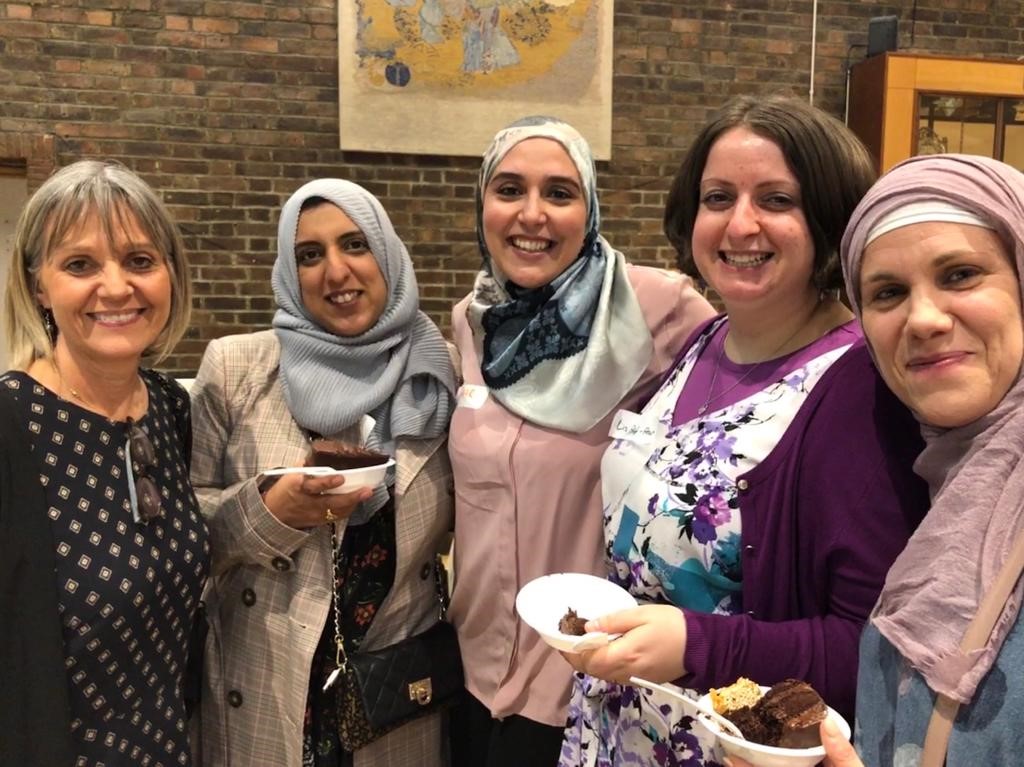 Image caption: Enjoying a lovely interfaith iftar at Alyth Synagogue with Jewish and Muslim sisters (Nisa-Nashim, 2019).
Image caption: Enjoying a lovely interfaith iftar at Alyth Synagogue with Jewish and Muslim sisters (Nisa-Nashim, 2019).
In a multifaith county such as the UK, Ramadan has become the perfect opportunity to engage in social action and for people of all faiths and none to come together.
Interfaith social action has become a big part of Ramadan and I love the increase in interfaith iftars every year! However, this year with the coronavirus pandemic, many of us will be asking:
What are our religious festivals going to look like? How will we make the most of Ramadan? And how can we reach out to others?
Whilst the idea of missing the daily commute whilst fasting sounds great… My beloved interfaith iftars at first seemed like a distant dream. Likewise, I’m sure many of you are wondering about what Ramadan in self-isolation will look like.
For non-Muslims too, with mosques, synagogues, churches and community centres closed and no interfaith iftars on the ground, you may also be unsure of how to enjoin in the Ramadan spirit. Well, don’t panic. All is not lost!
We can still have a wonderful Ramadan. Here’s how…
1. Worship at Home
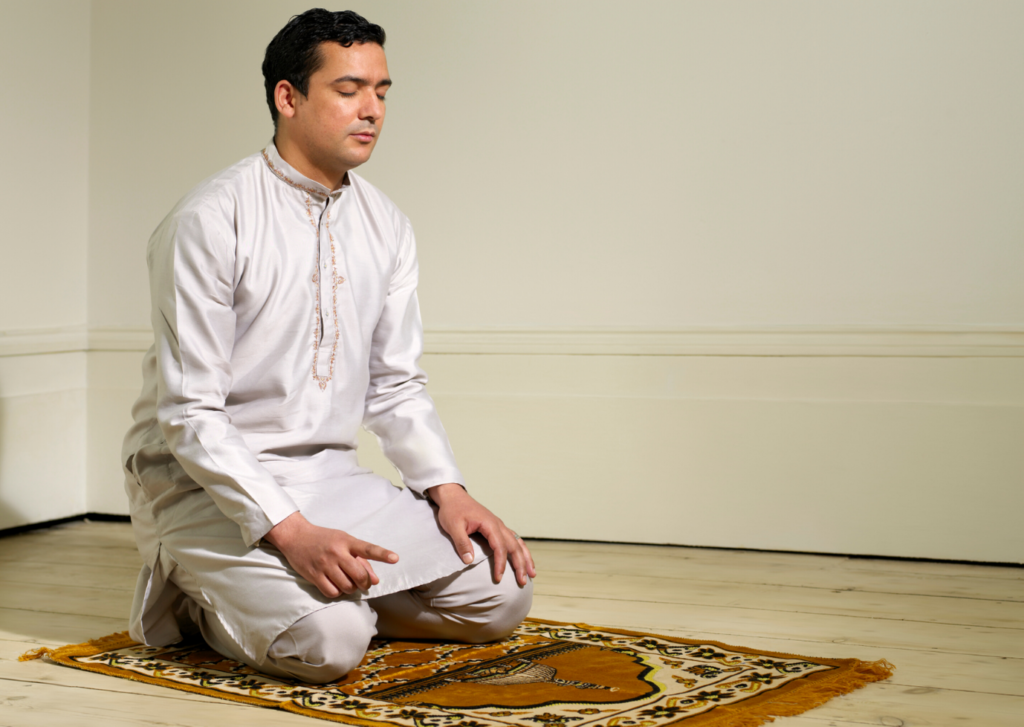
Ramadan is a time for spiritual reflection. Of course, whilst physically, collective worship is now limited to the members of your household, having a small group is still a positive.
So join in together! Pray together, read together and share this special time.
To solidify the bonds of interfaith friendship, why not also reach out to members of other faith communities?
You could for example set up an email or video-based (see more below) interfaith scriptural reasoning study club. Share reflections, traditions and learn about each other’s faiths.
If you live alone, you can also embrace this time of self-isolation to pause, focus on your spiritual needs and self-reflect. Why not write a diary and incorporate it into an interfaith blog for this holy Abrahamic period?
Yes, we may be physically alone, but we’ve still got God and each other. Plus a mountain of books, online articles and materials available for use!
2. Get E-social

Ramadan is a time to connect with others. Iftars with friends, family, colleagues and other faith communities offer an important opportunity to come together. And here’s the good news, despite the pandemic: we can still connect.
With Skype, Zoom and WhatsApp video calling, it’s now super-easy to stay in touch.
When I was working away from home, iftar calls connected with other Muslims. Likewise, I recently enjoyed an online interfaith Seder (Passover meal) with my lovely Jewish and Muslim sisters at Nisa-Nashim.
We’re now thinking about following up with online interfaith iftars this Ramadan. So, why not set up or join one too?
You can discover a host of faith groups via the Interfaith Network. If you’re looking to join, take a look at Eventbrite for online events and keep up-to-date through faith-based groups and pages via social media.
Remember: you can still socialise – it’ll just have to be at the tap of a keyboard!
3.Savour the Joy of Sadaqah
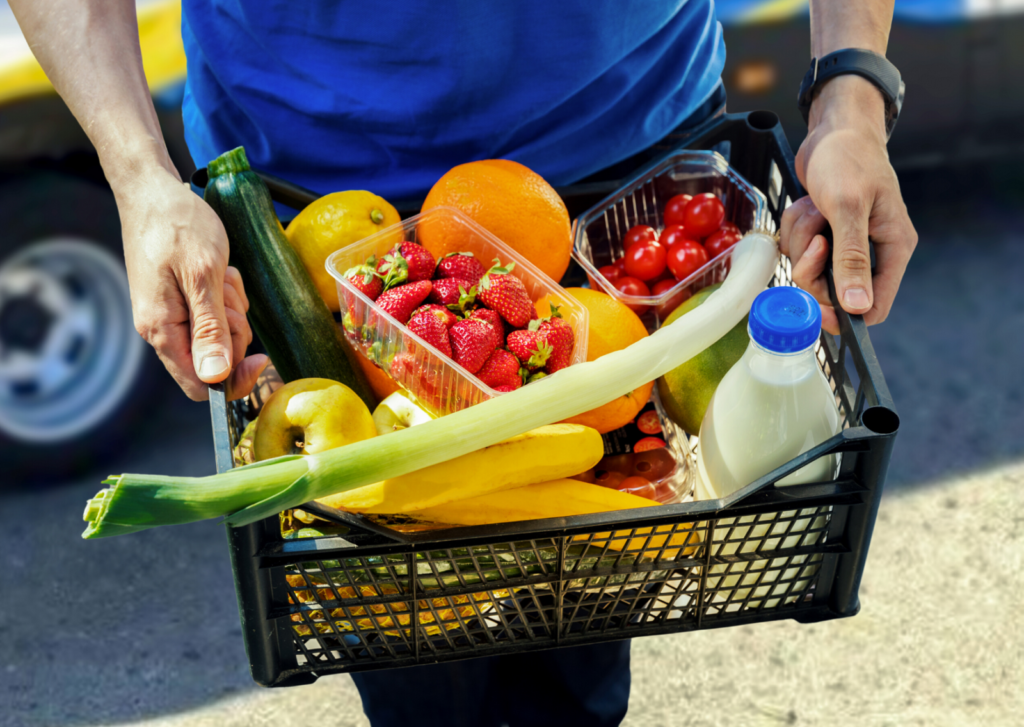
Ramadan is a month of fasting, self-discipline and reflection. And whatever our faith, we all know how important charity and recognising the needs of those less fortunate is. In Islam, the equivalent of a mitzvah (good deed) is called sadaqah. And this is a fundamental part of Ramadan.
Being at home thankfully doesn’t need to be an obstacle. In fact, during this current crisis, it’s more important than ever to look after each other. So, let’s come together and get in the spirit of interfaith social action.
You could help out by:
- Becoming an interfaith volunteer: Contact an organisation from another faith group such as Nishkam SWAT or the Jewish Volunteering Network to see what activities are possible
- Sending gifts: Surprise friends, neighbours and colleagues with a little pick-me-up
- Registering for the NHS’ volunteer service: Help vulnerable people by delivering food and medicines or calling up someone who’s feeling lonely
There’s plenty of opportunities to partake in sadaqah. So, share the Ramadan spirit!
4. Give Thanks and Have Patience
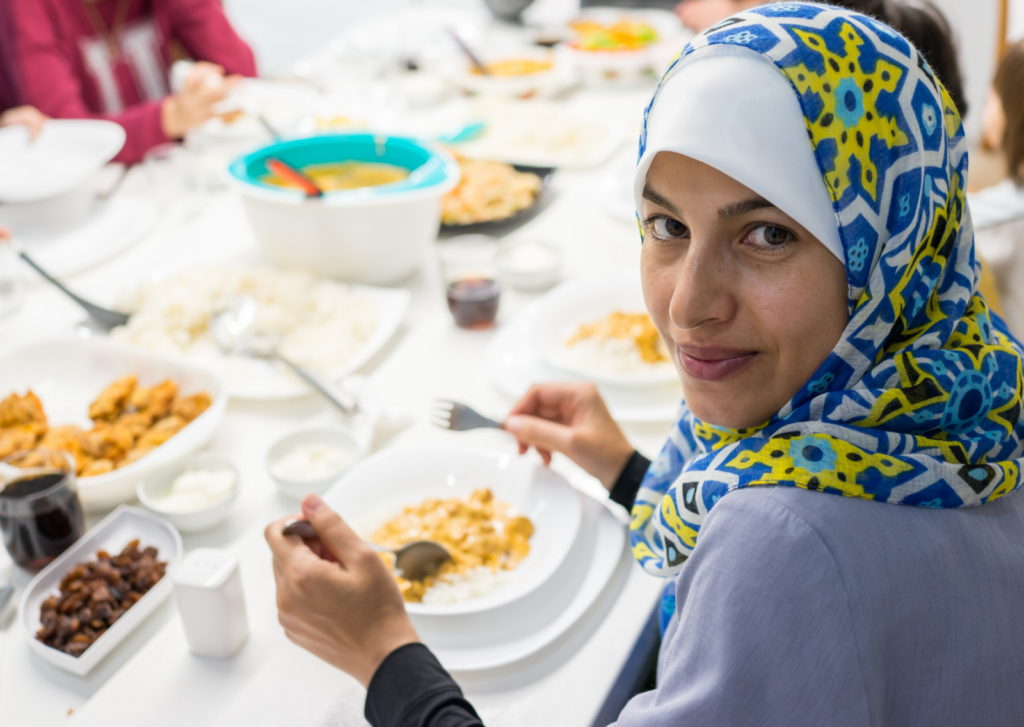
Ultimately, whilst the current circumstances may not be ideal, we need to look at the larger picture. For many of us at home, we’re safe, happy and healthy – plus we have food on the table to open and break our fasts, enjoin in an Easter meal and hold our own Seders.
In times like these which test our patience, let’s remember our blessings.
For those affected financially by the crisis, who are socially isolated and of course may be ill and/or otherwise affected by the virus, times are incredibly hard. So let’s be thankful for our health and think about those around us – here at home and all over the world – who remain vulnerable.
There’s still plenty to be positive about and Ramadan isn’t going anywhere.
Ramadan Mubarak, Chag Pesach Sameach and Happy Easter!
Have a blessed Ramadan, a meaningful Passover and fantastic Easter!
About the author
Liz Arif-Fear is a British Muslim and writer and campaigner passionate about human rights and interfaith issues, in particular Jewish-Muslim relations. She is Founder and Director of Voice of Salam and tweets at @Voice_of_Salam.
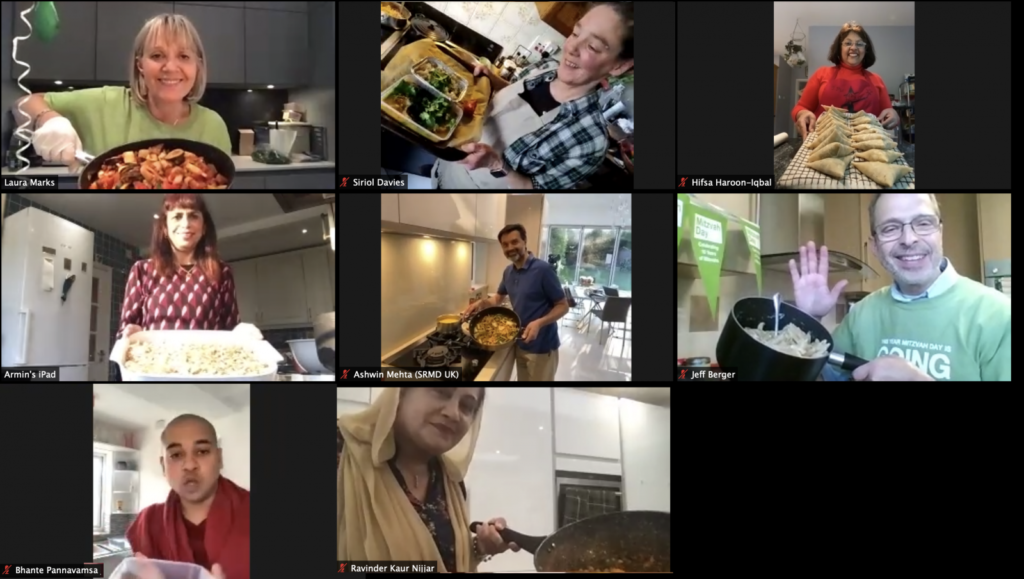
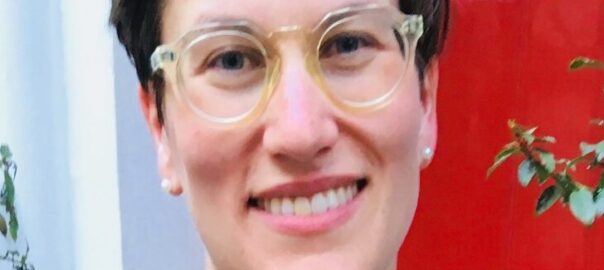
 Image caption: Enjoying a lovely interfaith iftar at Alyth Synagogue with Jewish and Muslim sisters (Nisa-Nashim, 2019).
Image caption: Enjoying a lovely interfaith iftar at Alyth Synagogue with Jewish and Muslim sisters (Nisa-Nashim, 2019).



